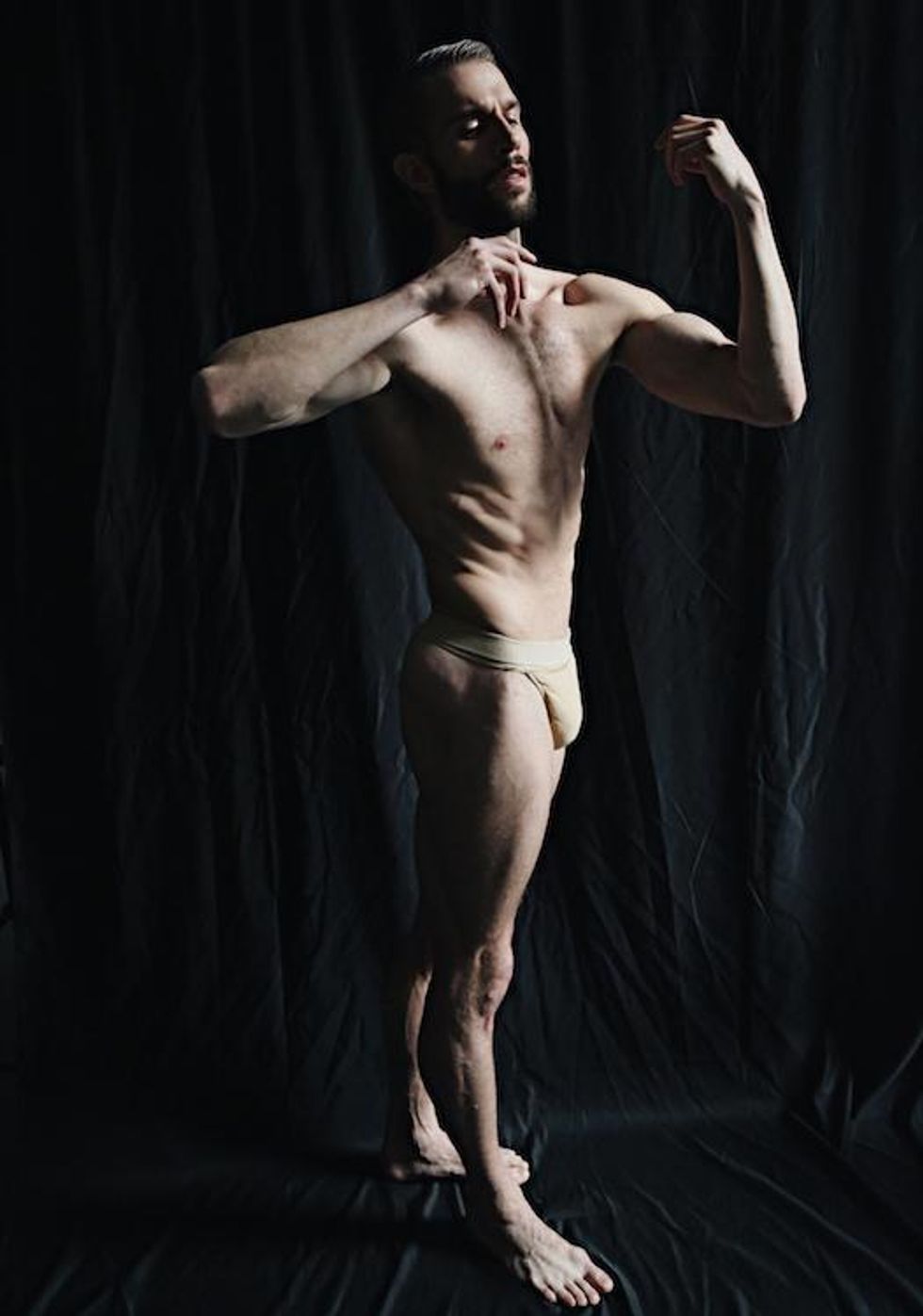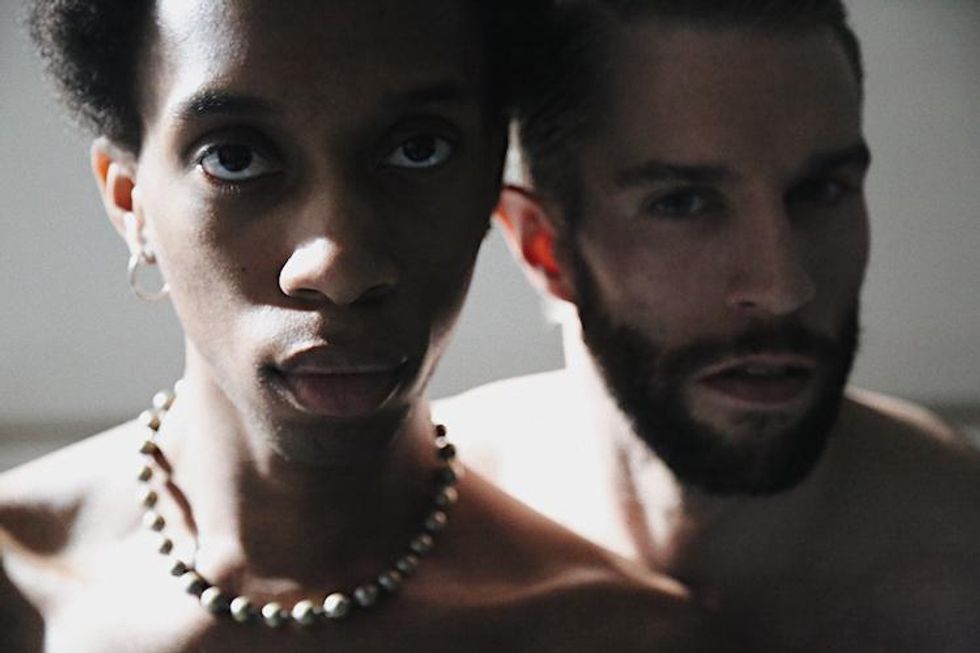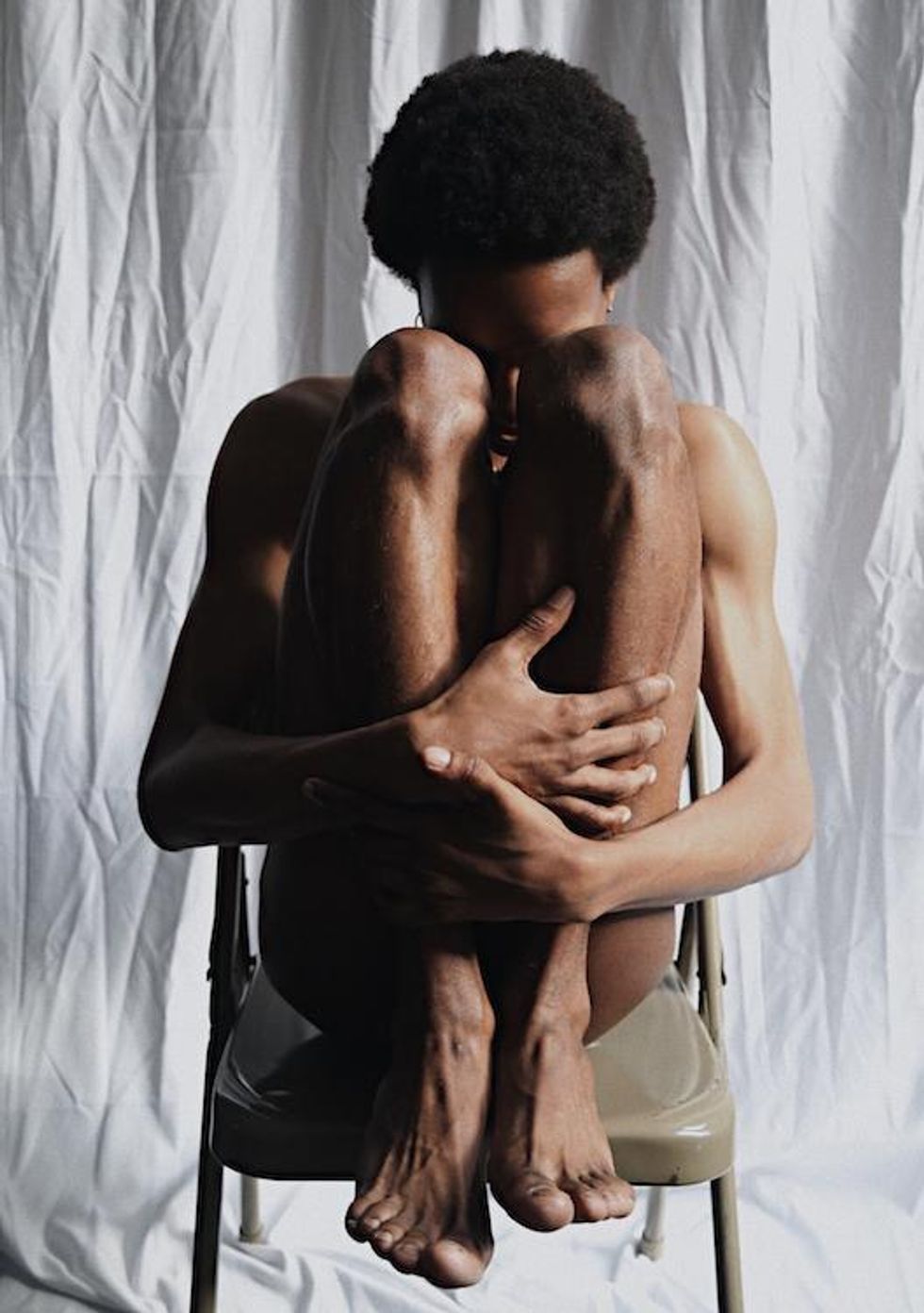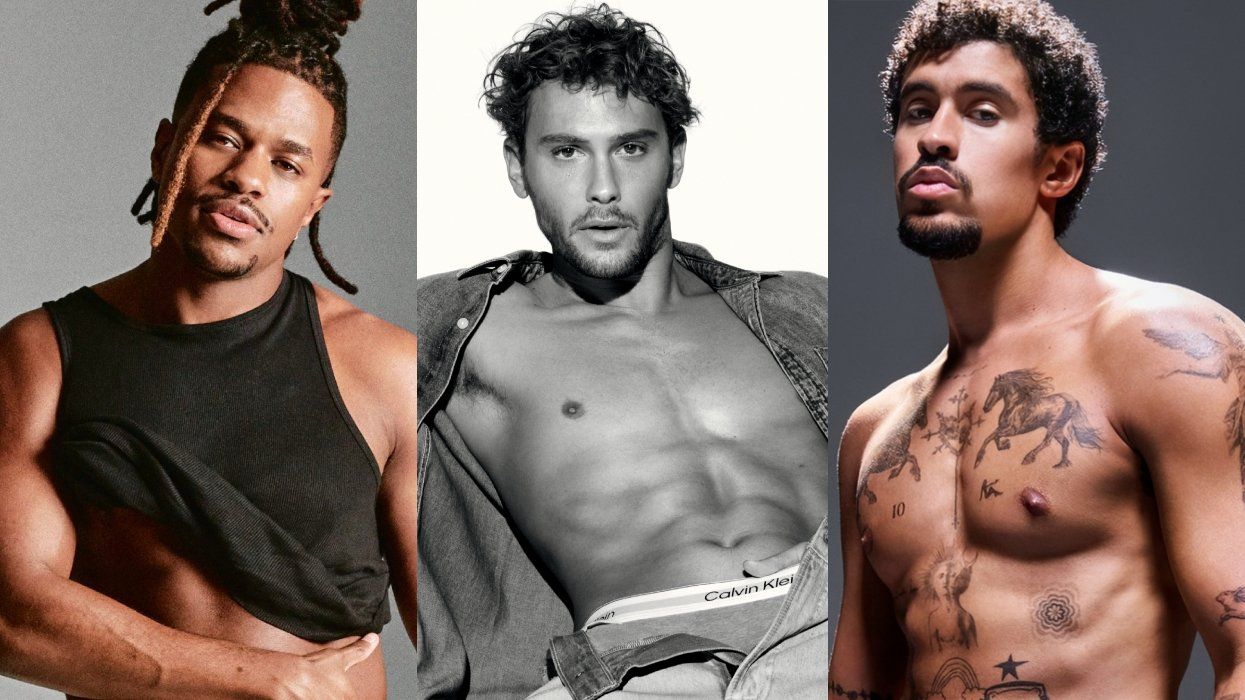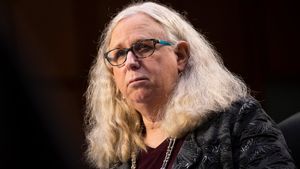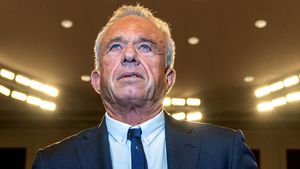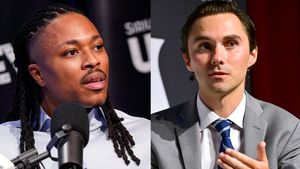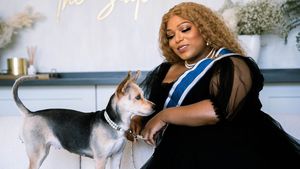James Whiteside, 32, has achieved his lifelong dream. In 2013, within a year of moving to New York to join the American Ballet Theatre (ABT) as a soloist, the Connecticut native was promoted to principal dancer, a highly prestigious gig he's held ever since. Parker Kit Hill, 21, has amassed an uncommon amount of fame for his age. Raised in Fort Worth, Texas, he's a buzz-worthy quadruple threat who can sing, dance, act, and utilize the vital world of social media, which has spread his queer and quirky performance art across the world and landed him everything from TV castings to sit-downs with The Huffington Post and Paper. But both men have faced adversity amid their successes, particularly within the rarefied world of ballet. Whiteside, arguably one of the most recognized dancers in the world, and Hill, a student of dance still finding his professional path, have had vastly different journeys. What connects them is their art and their queerness, two things that haven't always jelled in the eyes of others.
Related | Gallery: Gay in Ballet
For all its pageantry, delicacy, and ostensibly queer-friendly elements, ballet--be it in the setting of ABT or Joffrey Ballet School, which Hill attends--can also be a tradition-bound microcosm of the wider world's oppressions. Within the mirrored walls of dance studios, Whiteside has faced implicit and explicit pressures to tone down his flamboyance, while Hill has been blatantly ostracized for his blackness and for not conforming to so-called masculine standards. Which is all the more reason why both men have been driven to not conform. While acting out classical works, Whiteside has also disrupted the classic image of the squeaky-clean dancer, making his extracurriculars--drag, rap, fashion, pot-smoking--readily visible for all to see. Returning to Joffrey on a full scholarship after a much-needed break, Hill is balancing his dance classes while booking acting jobs and still entertaining his followers--in wigs and makeup if he feels like it. As Whiteside prepares up for ABT's spring season, and as Hill gears up for a role on the new season of Broad City, both sit down to share the pressures and triumphs of their craft.
OUT: Can you describe an instance when you've faced discrimination in ballet?
Whiteside: Usually, when people are being hateful, they don't come up to me and say, "I hate you because of this." But there is this writer for this sort of widely-followed ballet blog--and I don't even want to say the name to give this person any notoriety--who anonymously takes great pleasure in shaming all the things I do. Basically, it's an incredibly homophobic look at something that should be celebrated. And it veers far away from just my dancing with ABT. I haven't read it in ages, but people still come up to me and say, "Have you heard about this thing? This person is saying this about you and you should look into suing for defamation--take legal action!" And I just haven't had the time or the care because it's so nonsensical. The really interesting thing about most homophobic people is that they're too cowardly to be outwardly homophobic. So they talk about it with other homophobes and create this little world of homophobia that they can live comfortably.
Hill: The ballet company I danced with in Texas told me I needed to change my hair. Because they didn't want me to look too ethnic on stage. Because I had cornrows. In black culture having cornrows is very polished--it's pretty. But in ballet, no. They don't want us to be like that. Even now, I'm always told that I need to be clean shaven and that I need to have my hair picked out in a perfect afro, which is not how I usually wear it. The curl in my hair is such that having it in an afro all the time is unhealthy--I have to pull it out and I lose hair every time I comb it. My hair is usually just deconstructed and crazy--that's natural for me. I've told my directors this, but they don't care. They're just focused on it looking "nice."

Are there ways in which you've felt discrimination among your peers?
Whiteside: I find, at times, heterosexual male ballet dancers can overcompensate for the fact that they're doing ballet for a living. And while I don't know if any of them are indeed homophobic, I definitely see the fear of appearing gay within a lot of people, instead of just existing and being comfortable in their sexuality. And that's a generalization, and of course it's not everybody, but I see it nonetheless. And once again, going back to the cowardice of homophobia, no one has ever come up to me in my company and said, you know, "You're gonna burn, f****t!" It doesn't happen. Maybe it did in the '70's. I don't know. And if it did happen I know there would be an army of support behind me and that person would be fired.
Hill: I went and danced with one of the teachers who taught at Alvin Ailey, which is a very black school. They knew how to make black dancers look good and how to make everyone feel accepted. This teacher would also teach at Joffrey, so anytime I would have this class I'd make it apparent that I was there and really listen to what he was telling me. And a lot of people hated his class because he was the only black teacher that we had. He taught a modern style of dance that was really refreshing, but people didn't like it. And though he'd be amazing, all the roles that I would get at Joffrey were, in a sense, not handed to me, and I was never casted as [the lead] because I was black. I know that. I'm very capable of doing the things that all these other men are doing but I just know I'll always get overlooked because I'm not the ideal male figure for ballet. I'm a male but I'm not the correct male. And being gay adds another layer to it. I have to suppress that gayness to a certain extent to be a strong man on stage.

What's some feedback you've received from fans, friends, or family that's encouraged you?
Hill: When the director of the show in Texas told me I should take my hair down, I was confused but I did it. I was maybe 14 or 15 years old. I didn't really think too much about it, but when I went home my mom was like, "What are you doing?" I told her what happened and she immediately got pissed off. She was like, "You shouldn't have to do that to your hair, you should be able to keep it up. This is not okay. I don't want you to have to feel like you have to just automatically do these things. You should have resisted it and told them no, or that you wouldn't be in the show." I could have done that but I didn't. Either way, I'm glad she said it.
Whiteside: A mother sent me a message about her son, and she was basically saying that her son is a big fan of mine and he is a young dancer and he's always been very flamboyant and effeminate and fabulously gay from a very young age. She said she really appreciated the humor and the openness with which I present myself and I thought that was really beautiful--this kid is not only inspired by what I'm doing, but the mother is seeing it as hope for a son who maybe is bullied in school for being effeminate. Just seeing someone like me who has essentially made it might help him. That really touched my heart, and I thought it was beautiful that she took the time to let me know that.
What are some ways in which you're breaking the rules in ballet?
Whiteside: I'm not seeking to be ballet's rebel. I feel like that is a very tired shtick. I'm just trying to use my brain and create to the best of my ability. And I really enjoy the other activities I participate in, the creation of new work, the participation in other peoples' work, being a drag queen, being a writer and a rapper and a singer and a choreographer. All these things are very important to me and it's a nice break from the classicism of ABT, which I also love. I definitely feel like I have something to prove with my queerness and my loudness. It's hard to call one thing the most extreme because each thing has it's own version of extreme. I smoke pot in one video I made; in "Piece of Me," I'm riffing on Britney Spears and my life in New York City. And there's so much gayness in the Dairy Queens, the drag group I'm in. You can view all of this on the internet. I understand how a conservative ballet patron would be upset in finding out that I'm so unashamedly queer. But that's not my problem and that is certainly not going to make me behave any differently. My life outside of my roles has nothing to do with my roles. It can only enrich them by giving me more perspective.
Hill: I left. It was just an accumulation of everything--my personal life, my social media life, and then the ballet world. It all just got to a boiling point and if I would have continued on the same path I don't know where I'd be, because I felt myself almost going crazy. And when I stepped away from it I knew they were gonna be okay because they always had their white male dancers. I felt like me leaving wasn't their problem. I felt like all they were going to miss was the entertainment factor. I brought more of the entertainment because I wasn't the normal kind of dancer you'd see on stage. But I also knew it was gonna be hard for them to find another person of color. And when I did leave my school they actually reached out and were like, "We really want you to come back." I said the only way I'd come back was if I get more of a scholarship and I get treated better, and they agreed to that. Which is kind of crazy--I'm on a full scholarship now. Me and my director also have a really close relationship, and she understands now that I make money from my social media and that has to be part of my life too.

Looking ahead, what's something you see that's progressive, and shifting this world for you?
Hill: My school actually said, "We really do want you here and we really do care about you." They said they feel like they are finally waking up and growing, and they're more understanding. And there's more acceptance. My director was like, "I am casting you in more roles, and I'm doing bigger roles for you because I feel like you do have the potential to do it." I said, "Well, thank you." In my school at the very least, I feel like they're suddenly more accepting toward the color of my skin and also with me being kind of flamboyant. I feel like they're moving past it and seeing me as a dancer.
Whiteside: There's no way that queer work isn't going to infiltrate classical ballet. Some of it is small steps. Two years ago, we did a production of <Othello> by Lar Lubovitch, a well known contemporary modern ballet choreographer. In the show I play Iago, and there has been loads of speculation about Iago's sexuality. I had such a great time playing that role because, even though there are moments where it's very clear that my interest lies in a woman, there are still times when I'm interacting with Othello and I can explore my homosexual undertones and deep desires. And there are some really beautiful moments in that work. But there are queer choreographers who are pushing the envelope much further as far as male and female partner relationships depicted in dance. One of these days I'm gonna have a super gay pas de deux with a man and I'm gonna be living my life.
Photography: David-Simon Dayan
Photo Assistant: Landon Yost
Photographed at the American Ballet Theatre, New York, NY




